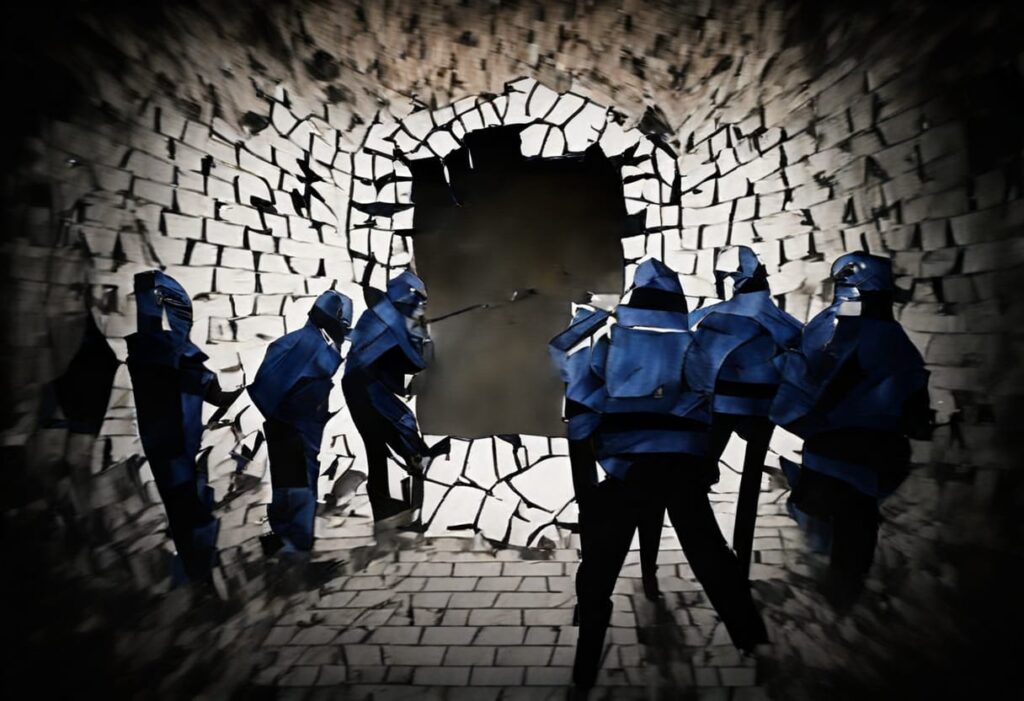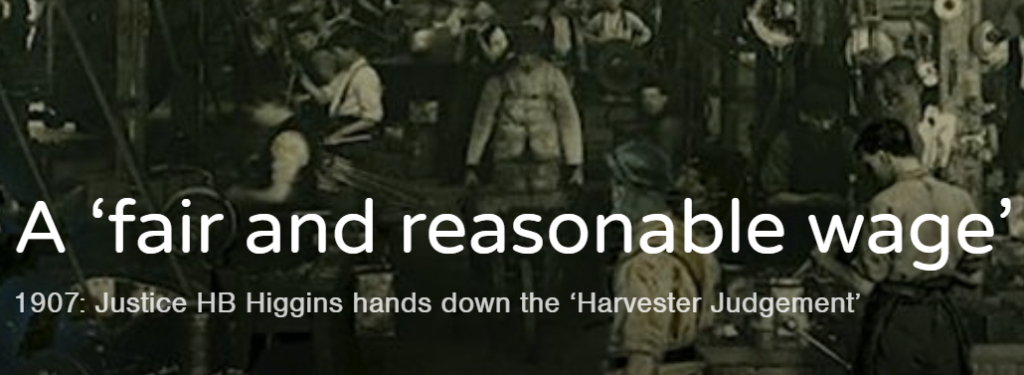
The Second Rejection of alternative centrism is the rejection of excessive freedom. The Second Rejection is the contention that excessive freedom leads to chaos.
Order might be suffocating, and breaking out of an excess of it might feel wonderful. It might feel so wonderful, and the freedom such a relief, that it becomes easy to believe that the more freedom, the better. But, just as with order, it’s possible to have too much of a good thing. When the last vestiges of order are obliterated, one is left with something more resembling chaos than freedom.
In the same way that a classroom becomes chaos without a teacher, because all are maximally free, society becomes chaos without a ruler. If you, like me, have had the experience of being a relief teacher of a class of primary school kids stuck inside on a rainy day, you will understand that even the perception of unlimited freedom leads quickly to chaos. The line between freedom and chaos becomes thinner and thinner the more freedom there is.
The valuation of freedom above all rests on a certain interpretation of human nature. The assumption of the Left – both its establishment and alternative forms – is that human nature is inherently good.
Here they go much further than Mencius’s argument that a person observing a child crawling towards a well will naturally act to prevent it falling in. The argument is closer to that of Rousseau’s noble savage, in which human nature, unspoiled by modernity, is naturally desiring of peace and goodwill for all living beings, unblemished by malice.
The main problem is that people are naturally selfish, even if they are not sadistic. The world is complicated, and it’s not always obvious if a certain action is a fair one. Consequently, many people just act on what is best for themselves, and rely on the outside environment to provide self-correction. Thus, simple ignorance is enough to guarantee that, given enough freedom, people will take advantage of each other. Without at least enough order to have law, social carnage is the result.
This is why the belief that people don’t need rulers is considered childish by the alternative centrist. It reminds one of children asserting that they don’t need bedtimes.
One can easily imagine what would happen to a society without any laws. Films such as The Purge give us some idea: there would be enormous numbers of revenge attacks, reprisals and blood feuds. The history of Anglo-Saxon England before the imposition of the Danelaw is rife with blood feuds. We know from psychological studies such as the Stanford Prison Experiment that there are very dark streams of malevolence within the human heart. To some extent it’s only fear of legal consequences that keeps this under control.
The French Revolution is perhaps the most famous example of sudden extreme freedom. Although freedom was one of the rallying-cries in 1789, by 1793 the revolutionaries were already chopping off heads en masse. It seems that the more extreme the freedom, the more tenuous, and therefore the greater the need to protect it by purging anyone who might threaten it. This can, of course, be considered a new form of order, which illustrates the degree to which the pendulum of history naturally swings between order and chaos.
The common failure of co-operative societies is a further example. It sounds good having a job where you only work if you feel like it, because it affords the maximum possible freedom from slavery. In practice, few people really feel like it unless they keep their production for themselves. So very little gets done.

Perhaps the failure of Communism itself is the ultimate example. “From each according to his ability, to each according to his need” would be a great slogan if human nature was inherently highly altruistic, instead of opportunistic and callous. The freedom to choose not to contribute is too much for most. The vast majority of people will choose idleness over drudgery and submission to a boss.
The freedom to remake society is also the freedom to destroy everything good about it. This is never the plan, but seems to nevertheless keep happening. Awareness of this is what inspires the Second Rejection.
The major flaw of leftism in general is the leftist misconception of human nature. Human nature isn’t evil, but it certainly isn’t good either. The Second Rejection is also, implicitly, a rejection of the naivete of the Left. In rejecting absolute freedom, the alternative centrist rejects the inaccurate (both misguided and stupid) narratives about human nature that have plagued the Left since the beginning.
An excess of freedom is not limited to legal freedom. Social freedoms are also political, and also subject to the Second Rejection. At time of writing, the New Zealand Parliament has a Green MP with a reputation for coprophagia embroiled in an indecency scandal, and the Spanish Parliament recently produced someone similar: a man filmed eating his own excrement. The ongoing trans hysteria is another example of freedom having undesirable consequences. The alternative centrist happily says No to such dubious freedoms.
All of this degeneracy reminds of the madness of the Weimar Republic (which presages the Third Rejection).
The general rule could be described thusly: when social order is overturned, freedom is the result, but if a new order is not imposed – at least to some extent – the freedom will collapse into chaos.
Plato describes this exact phenomenon in detail in Republic. A lower class of person demands freedom above any other consideration, such as propriety: “In democracy […] there’s no compulsion […] to submit to authority if you don’t want to.” As a result, democracies lack moral authorities and moral guidance. People simply follow their most bestial impulses – fear, lust, wrath, greed – unless or until something stops them.
The end result of too much freedom, Plato tells us, is tyranny. People who are too free can never agree on what the right way forward is, and the all-too-inevitable end result is the rise of a dictator who promises to use force to smash through the deadlock. It can seen thusly that an excess of order and an excess of freedom both lead to dystopic misery.
Even worse, the struggle between these two visions of dystopia causes more dystopia. Without a mediating force, the Establishment Right and the Establishment Left fight it out on the battlefield, often resulting in Pyrrhic victories for whichever of the two remains.
The alternative centrist, in both the First and the Second Rejections, rejects both too much order and too much chaos. But the problem of warfare between the two remains: the pendulum of history keeps swinging, and with each return destroys the lives of millions. Some degree of balance needs to be struck between order and freedom. This presages the Third Acceptance.
*
This chapter is from The Alternative Centrist Manifesto, the book that offers the answers to the political problems of the West.
*
For more of VJM’s ideas, see his work on other platforms!
For even more of VJM’s ideas, buy one of his books!
*
If you enjoyed reading this piece, buy a compilation of our best pieces from previous years!
Best VJMP Essays and Articles of 2023
Best VJMP Essays and Articles of 2022
Best VJMP Essays and Articles of 2021
Best VJMP Essays and Articles of 2020
Best VJMP Essays and Articles of 2019
Best VJMP Essays and Articles of 2018
Best VJMP Essays and Articles of 2017
*
If you would like to support our work in other ways, make a donation to our Paypal! Even better, buy any one of our books!




